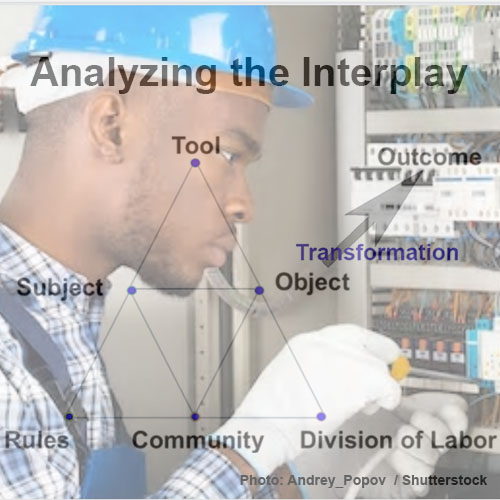Analysing the Interplay Between Institutional-Based and Workplace Learning
DOI:
https://doi.org/10.7577/sjvd.3249Keywords:
Field Expeditions, Action Research Projects, Collaborative Activities, Vocational Teacher Training Institutions, Activity SystemsAbstract
Learning and working are two significant social networks in preparing individuals for future life. An understanding of learning in the workplace can inform how we organize institutional learning in order to produce competent and relevant vocational education and training (VET) graduates for the world of work. This paper explores the existing collaborative activities in the masters in vocational pedagogy (MVP) study program at Kyambogo University in Uganda and their linkage with workplaces. Two research questions were posed. (1) What collaborative activities are there in the MVP program that allow for learning in vocational teacher training institutions (VTIs) and workplaces? 2) How is knowledge constructed amongst the participating actors? The questions were investigated through in-depth, semi-structured interviews with purposively sampled participants. An analysis of the documents from the MVP project, including program reports, collaborating stakeholders meeting minutes and students’ theses, was done. The findings revealed that field expeditions and action research (AR) projects were the key activities incorporated in the MVP program to support the back and forth learning from workplaces. Through interactions and sharing practices, these activities promoted learning by solving problems encountered at work and by doing real life tasks.
Downloads

Downloads
Published
How to Cite
Issue
Section
License

This work is licensed under a Creative Commons Attribution 4.0 International License.
Authors who publish in SJVD accept the following terms:
- The author(s) retain copyright and gives the journal the right to the first publication of the work licensed simultaneously under a Creative Commons Attribution License that allows others to share the work when authorship and first release in the SJVD are recognised.
- The author(s) may enter separate, extra-contractual arrangements for non-exclusive distribution of the journal's published version of the work (for example, send it to an institutional archive or publish it in a book) referring to the first release in SJVD.
- The author(s) are allowed and encouraged to post their work online (e.g. in institutional archives and on their website) before and during the filing process, as it may lead to useful exchanges of views, as well as faster and increased citation the published work.